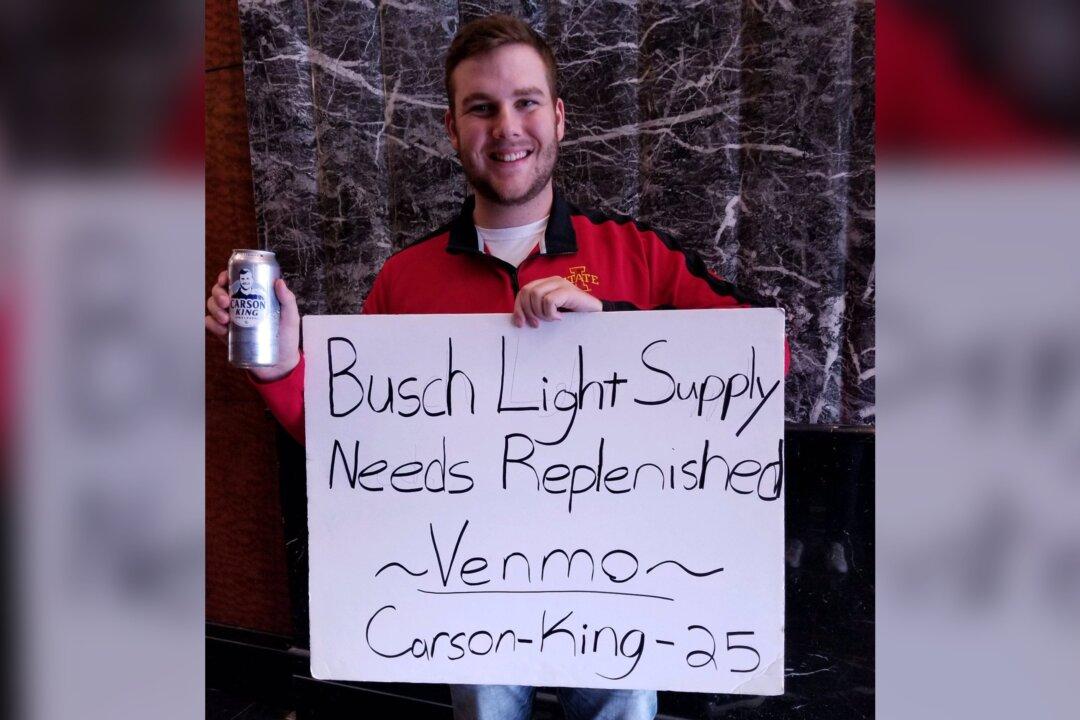A reporter who dug up tweets posted eight years ago while writing a profile on a man who was responsible for over $1 million in charity no longer works for the Des Moines Register, the Iowa paper announced late Sept. 26.
Aaron Calvin, the reporter, was researching a profile on Carson King, 24—a University of Iowa fan who raised over $1 million for the University of Iowa Stead Family Children’s Hospital after he created a unique sign for a Sept. 13 Iowa State game—when he came across two tweets King wrote when he was 16.





